Plastic Bans Across Africa — Who’s Leading and How It’s Changing Everyday Life
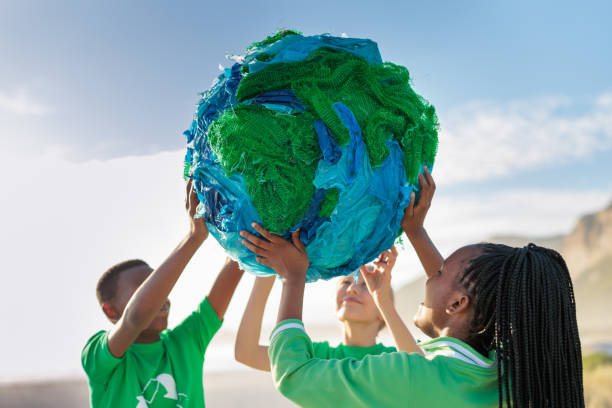
Africa’s flippin’ over the plastic script, finally. Plastic basically had its way for decades—bags clogging drains, chip packaging littering highways like tumbleweeds, you get the picture. Those lightweight plastic bags were everywhere, the cockroaches of convenience—you can't kill 'em and they're always turning up where you don't want them to. But lately? Something’s actually changing. Stealthily, quietly, governments and citizens are moving away from the plastic way. Everywhere, bans are arising, folks are finding new ways, and you can literally see it occur, not just read about it.
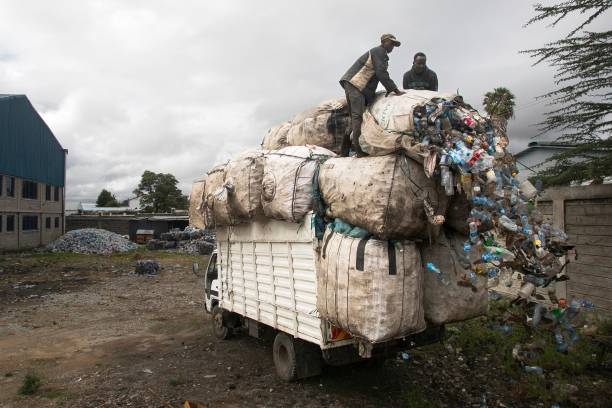
Walk through a market these days and it’s a whole new vibe. Paper wrapping, reusable totes slung over shoulders, and some clever types are making bags out of cassava starch—who saw that coming? Sure, not everyone’s thrilled. Street vendors and small factories have taken some hits from the bans. Losing cheap plastic overnight definitely stings. But in all seriousness, this is considered by many to be long, long overdue. The plastic issue was getting out of hand, and something had to give.
Gotta credit Rwanda—they were ahead of the curve. Back in 2008, they just said, “No more plastic bags, period.” Try showing up at Kigali airport with plastic in your suitcase and you’ll get a polite but firm “not here, friend.” And it’s working: Kigali looks sharp, spotless. It’s not just the ban, either—there’s this big monthly clean-up called Umuganda where everyone pitches in. It’s sort of a national team-building exercise, and the pride runs deep.
Kenya followed suit in 2017, but they went full beast mode—plastic bags became illegal, with fines so high your wallet would cry, and even jail time if you pushed your luck. At first, people freaked out. Manufacturers, traders, all sorts of complaints.Wait a year, however, and, candidly, you might be able to see the roads cleaning up, waterways no longer choked. Even skeptics had to admit that things looked a whole lot cleaner.
Other countries jumped on board too, with their own twists. Morocco rolled out “Zero Mika”—no plastic bags, period. Tanzania slammed the door on single-use bags too, imports and all, so everyone had to get creative with paper or fabric. The government of Senegal really put the pressure on, and in addition to that, they campaigned to actually win the people over to their side, rather than attempting to threaten them with fines.
It's not entirely smooth sailing, mind you. There are some countries—Cameroon, Ethiopia, Gabon, Mali—who are doing it gradually, easing off or limiting it only halfway. Some target only those thin bags, others go after bottles and all that single-use junk.Enforcement is a bit hit and miss, especially in West and Central Africa. You know what, though? People are starting to twig: plastic = pollution. Not just some activist slogan—real folks, real change.
So yeah, Africa’s shaking off the old throwaway junk culture. They’re not just following someone else’s rules now—they’re making up their own, and it’s all about cleaning up for good. Kind of wild seeing the continent that used to import everyone else’s waste now leading the charge for a cleaner future. That’s what you call flipping the script.
Plastic-Free Life in Real Time
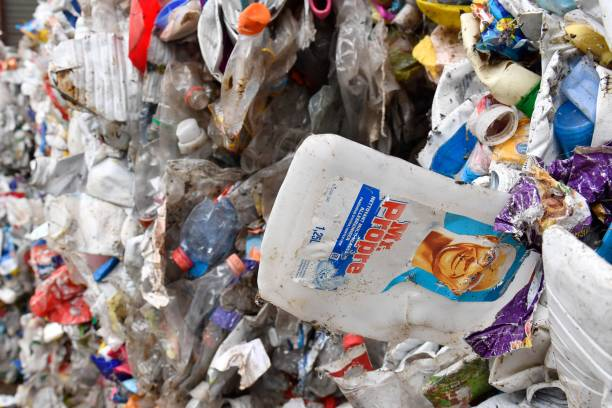
So here's the reality: you can have all the policies in the world on paper, but the real magic (or mayhem) happens in folks' kitchens and bazaars, not in some government complex. Walk around Kigali or Nairobi and there are folks stumbling down the street, arms full of groceries stuffed into these wild, retro wicker baskets—fill your grandma probably used to carry to market before plastic bags intruded. Banana leaves, old newspapers, all that jazz? Back in action, baby. And it's not just for the 'gram—there’s actually a legit reason behind it.
Still. Quitting plastic? Not exactly a piece of cake. If you’re grinding just to keep the lights on, fancy paper bags and those cute Instagrammable cloth totes? They’re not exactly budget-friendly. Not everyone’s lining up to drop extra cash just to feel a little greener. Some traders grumble, some customers roll their eyes, and — honestly — some folks just sneak in those forbidden plastic bags from across the border. Out in the villages, nobody’s really checking anyway, so old habits hang on. If a cheap plastic bag is sitting there, a farmer’s probably gonna grab it.
There's the silver lining. Streets aren't littered with trash after every rainstorm, and cows no longer die from consuming plastic (something, we're being blunt here, never looked good). Kids are running clean-up crews, and suddenly every other school has an environmental club. It’s actually kinda cool to care about trash now.
And the innovation? Wild. Over in Nigeria and Ghana, some startups are turning plastic junk into roof tiles and playground benches. Others are creating packaging from cassava or seaweed — like, who knew your lunch could be wrapped in something once a root vegetable? It's frugal, it's resourceful, and it's putting people to work. Win-win.
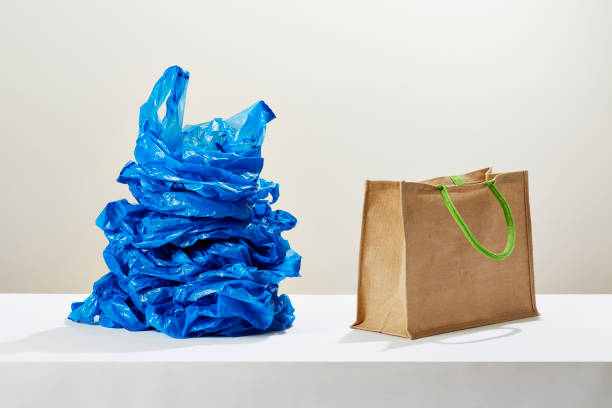
What's the secret? Education, hands down. In Kenya, kids are getting lessons on recycling right alongside their math homework.Churches and mosques? They’re preaching about saving the planet almost as much as saving souls. All of a sudden, throwing your trash the right way is not only a regulation — it's a virtue.
But, hey, there's still one gigantic question mark hanging over. Is Africa going to keep doing this without strangling local business? Are governments going to find the cash for real infrastructure, or is this just another greenwashing fit? Nobody wants these bans to turn into empty gestures.
For the time being at least, it's all about getting that balance right — keeping things easy without jacking up the future. It's complicated, it's messy, and it's very much still a work in progress. But honestly? That’s just real life.
Man, Africa’s battle with plastic? It’s a wild ride—some wins, plenty of headaches. Sure, a bunch of countries have banned the stuff, but honestly, keeping those bans real… that’s a mess, especially near borders where smugglers are basically having a field day. Toss in the usual suspects—corruption, garbage trucks that never show up, and almost nonexistent recycling plants—and you start to see why progress feels like two steps forward, one step back.
And let’s not sugarcoat it: these bans have hit small-time factory owners hard. Plastic was cheap, easy, and kept food on the table for a lot of folks. Now? Some of them just shut down. Others are still making bags, just way more low-key. If there’s no government cash or perks to help them switch to greener stuff, they’re stuck. Funny how policies meant to help everyone sometimes end up steamrolling the little guys.
The Challenges, Progress, and Road Ahead
So what’s the real fix? Apparently, just slapping on a ban isn’t enough. You gotta put some real muscle into waste management, get people actually caring about what they toss, and make sure there are affordable, eco-friendly options on the shelves. If doing the right thing is easy—and not a total pain—folks will usually go along.
There are a few bright spots, though. Rwanda? They don’t mess around. Their ban actually sticks because the whole country got schooled on why it matters, plus there’s a vibe that everyone’s in it together. Kenya’s getting creative too—when the government cracked down, local businesses started pumping out reusable bags like it was the next big thing. Morocco went even bigger: their “Zero Mika” campaign didn’t just ban plastic, it also handed out support to people making paper and cloth bags. Boom—new jobs all over the place.
The knock-on effects? Kinda awesome. Cleaner streets mean tourists actually want to show up (and spend money), hospitals see fewer patients with trash-related illnesses, there’s less flooding because drains aren’t clogged up with junk… the list goes on. People start to think that collecting trash is patriotic, not some rule to follow.
But don't get too settled—there's still a lot of talk and not much doing. Some countries announce wonderful things, but enforcement is pretty much a shrug. Ministries don't talk to each other much, so who's doing what? Nobody quite knows. If Africa wants this anti-plastic thing to stick in the long term, everybody's got to get on the same page and follow through.
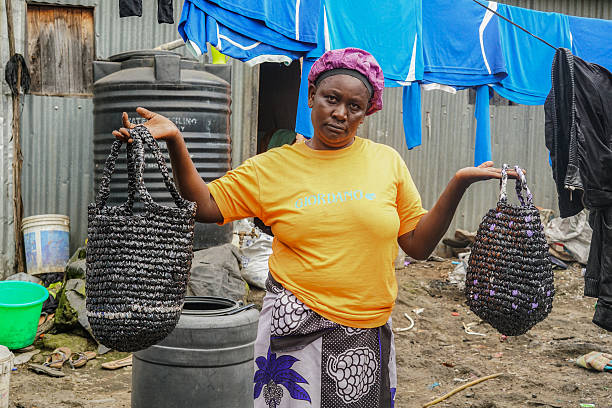
This is the thrilling part, though: Africa could potentially show the rest of the world how it is done. Not simply plastic prohibited, but marrying old-fashioned common sense, locally extracted materials, and new green tech. Not copying Europe or America, but figuring out what does work here.
Ultimately, plastic prohibition is not just about prettier sidewalks. It's about Africa taking control, determining what progress is, and building a future that really fits. Sure, it's messy, and far from perfect. But hey—who told us that saving the world was supposed to be easy?
Recommended Articles
There are no posts under this category.You may also like...
Bundesliga's New Nigerian Star Shines: Ogundu's Explosive Augsburg Debut!

Nigerian players experienced a weekend of mixed results in the German Bundesliga's 23rd match day. Uchenna Ogundu enjoye...
Capello Unleashes Juventus' Secret Weapon Against Osimhen in UCL Showdown!

Juventus faces an uphill battle against Galatasaray in the UEFA Champions League Round of 16 second leg, needing to over...
Berlinale Shocker: 'Yellow Letters' Takes Golden Bear, 'AnyMart' Director Debuts!

The Berlin Film Festival honored
Shocking Trend: Sudan's 'Lion Cubs' – Child Soldiers Going Viral on TikTok

A joint investigation reveals that child soldiers, dubbed 'lion cubs,' have become viral sensations on TikTok and other ...
Gregory Maqoma's 'Genesis': A Powerful Artistic Call for Healing in South Africa

Gregory Maqoma's new dance-opera, "Genesis: The Beginning and End of Time," has premiered in Cape Town, offering a capti...
Massive Rivian 2026.03 Update Boosts R1 Performance and Utility!

Rivian's latest software update, 2026.03, brings substantial enhancements to its R1S SUV and R1T pickup, broadening perf...
Bitcoin's Dire 29% Drop: VanEck Signals Seller Exhaustion Amid Market Carnage!

Bitcoin has suffered a sharp 29% price drop, but a VanEck report suggests seller exhaustion and a potential market botto...
Crypto Titans Shake-Up: Ripple & Deutsche Bank Partner, XRP Dips, CZ's UAE Bitcoin Mining Role Revealed!

Deutsche Bank is set to adopt Ripple's technology for faster, cheaper cross-border payments, marking a significant insti...
